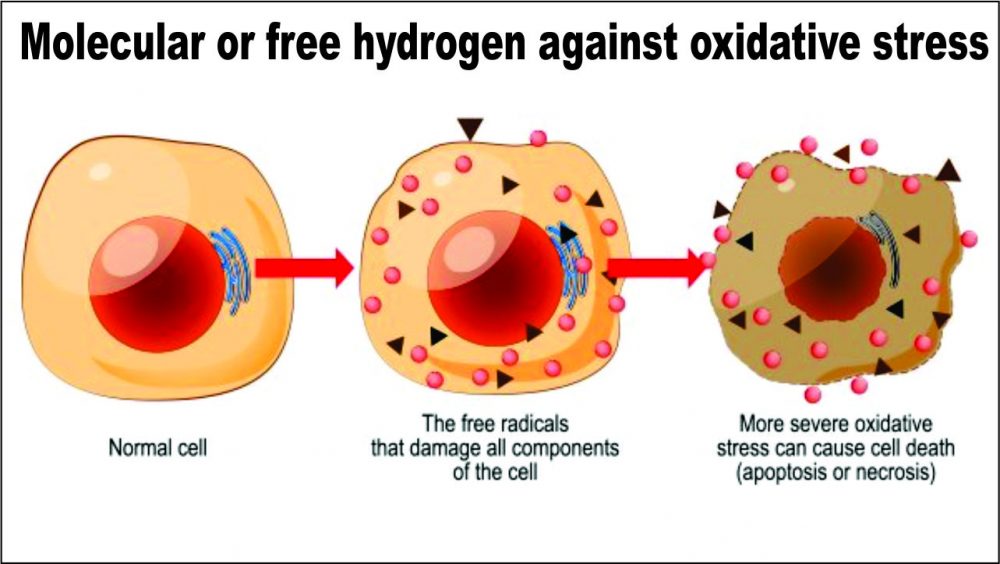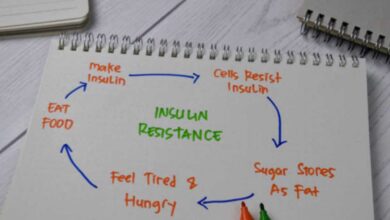Hydrogen is the lowest mass element found in the universe and therefore takes first place in the periodic table. It is also a component of the water element H2O, one of the most important compounds on earth.
For this reason, hydrogen has long occupied a special position in research: as the fuel of the future, hydrogen gas, for example, is said to be particularly environmentally friendly, since water vapor is the only waste product produced during energy production.
For a long time, however, no application could be found in medicine because hydrogen proved to be completely ineffective in the human body. This was widely agreed upon until researchers from Japan made an interesting discovery in 2007.
Antioxidant effect of hydrogen gas
A group of researchers led by Dr. Ohsawa conducted a series of experiments on rats that allowed them to demonstrate that hydrogen could reduce certain types of tissue damage.
This is damage caused by the restored blood flow in a section of tissue that is undersupplied. If a tissue is supplied with blood poorly or not at all (ischemia) for a long period, then the cells lack the oxygen they need for their cell metabolism.
Anaerobic (low-oxygen) metabolism creates certain metabolic products that react with the oxygen contained in the blood as soon as the blood flow is restored. This creates a large number of reactive oxygen radicals, which can massively damage the surrounding tissue.
In the experiment, after the administration of hydrogen gas, the hydrogen molecules were able to penetrate all tissues quickly and easily and neutralize the oxygen radicals like an antioxidant. The severe tissue damage usually observed was largely absent in the test animals.
Since the study was published in “Nature Medicine” in 2007, the number of publications on this topic has multiplied: there are now over five hundred different studies on the antioxidant effect of hydrogen and its effect on various diseases.
The results of the studies, mainly from Korea and Japan, are promising: Hydrogen can therefore be used therapeutically and prophylactically as a selective antioxidant. In contrast to vitamins, hydrogen molecules do not interfere with useful bodily processes, because immune cells also use free radicals to ward off pathogens.
It is precisely for this reason that a long-term, high-dose administration of vitamins in the form of food supplements is associated with a deteriorated immune system.
Understanding how molecular hydrogen works in the body requires some prior knowledge of the physical and chemical properties of this element.
What is molecular (free) hydrogen?
The chemical element hydrogen is abbreviated with the symbol “H” for hydrogen (lat.). In the entire universe, hydrogen is not only the lightest but also the most abundant element. Usually, it consists of a positively charged proton and a negatively charged electron, less often one finds hydrogen atoms with one or two neutrons.
Because they only have one electron, hydrogen atoms are particularly reactive, so hydrogen is only found in its atomic form under special circumstances. Usually, two hydrogen atoms combine to form an H2 molecule (molecular hydrogen or free hydrogen). A colorless, non-toxic, odorless, and tasteless, non-metallic gas is produced.
Due to its special properties, hydrogen has fascinated people ever since it was discovered. For example, the first zeppelins used hydrogen gas in their lifting bodies because it has a lower density than air. The first modern hydrogen-powered fuel cells were developed in the 1960s.
Energy is generated by reacting hydrogen gas with oxygen. Since this process only produces water as a waste product, this fuel cell is rightly regarded as the drive of the future.
Medical application of hydrogen
In medical research, on the other hand, hydrogen was not considered for a long time because no effect on the human body could be identified.
The first tests with positive results in 19752 went unnoticed, so the astonishment was all the greater – at least in Asia – after the research results were published in 2007. In Japan and Korea, the study is considered a medical breakthrough.
Accordingly, hydrogen is used in two ways in the human body: as an energy supplier and as a selective antioxidant. Hydrogen is released when carbohydrates and fats are broken down.
This is then bound to certain molecules and stored in the power plants of the cells (mitochondria). The reaction with oxygen produces energy, which is absorbed and transported by the energy carrier ATP.
Molecular hydrogen (H2), on the other hand, acts as a radical scavenger (antioxidant): it neutralizes harmful reactive oxygen and nitrogen radicals (see below), which are caused, among other things, by cellular respiration, stress, and pathological processes in the body. Compared to other forms of antioxidants, such as vitamins or phytochemicals, free hydrogen has some key advantages:
Hydrogen gas is harmless
Several studies have already been able to convincingly demonstrate that the use of hydrogen on humans is harmless.
Hydrogen gas disperses quickly.
Because its atomic mass is so small, hydrogen molecules can easily penetrate all tissue structures and spread rapidly throughout the body. The blood-brain barrier is also not an obstacle for them so the sensitive brain tissue can be protected.
Hydrogen gas is water and fat-soluble at the same time.
These properties ensure that the molecules also reach cells that are covered by a layer of fat and filled with fluid. In this way, the molecules can also penetrate layers of fat and enter fluid-filled cells.
Free radical theory
The so-called radicals are molecules from which an electron has been removed by chemical reactions. Now that they have an unpaired electron, radicals are extremely aggressive. Unless they have a full pair of electrons, they try to replace the missing electron by “snatching” an electron from another atom or molecule.
This process of oxidation is very damaging to cell and tissue structures. Damage to sensitive structures such as DNA can occur, particularly when large quantities of radicals are produced. At the same time, however, free radicals are used by immune cells in the fight against pathogens.
Radicals are formed during a wide variety of chemical processes taking place in the body, including cellular respiration, for example. To prevent excessive oxidation, the body can take countermeasures: with the help of its radical scavengers such as glutathione, radicals are neutralized and thus rendered harmless. Antioxidants (vitamins, secondary plant substances) also get into the body through food and support this process.
However, there are various circumstances, such as an unbalanced diet, disturbances in nutrient absorption, or increased nutrient requirements due to stress or illness, which lead to more free radicals being produced than the body can neutralize.
This leads to a condition known as oxidative stress. This can result in massive oxidative damage to membranes, DNA, proteins, and other cell components. Such damage occurs in many chronic diseases. It is also assumed that oxidative stress is one of the most important factors in the aging process.
Long-term intake of high-dose vitamin supplements does not provide reliable protection, as modern studies have shown. Vitamins are very unspecific in their effect and also interfere with useful immunological processes in the body. The result is higher rates of illness and a general deterioration in health.
Molecular hydrogen works in a targeted manner
Radicals are created during completely natural processes in the body as well as through pathological processes. So that they do not cause any damage, we need enough radical scavengers in the form of antioxidants.
Sometimes, however, such large amounts of free radicals are produced that the body’s antioxidants are not sufficient. A high-dose intake of vitamins via dietary supplements can also be disadvantageous, as they cannot distinguish between harmful and beneficial radicals.
Molecular hydrogen, on the other hand, acts selectively. It naturally has only one electron and therefore “likes” to combine with certain oxygen radicals (hydroxyl radicals, OH⦁). When a hydrogen gas molecule (H2) and two hydroxyl radicals (OH⦁) react, two water molecules are formed.
There are no residues that need further processing. The hydroxyl radical is the most harmful free radical in the human body and can easily be converted into a useful substance by hydrogen.
Nitrogen radicals (peroxynitrite anions, ONOO-) can also be rendered harmless by the hydrogen gas. It is particularly important that hydrogen spreads easily and quickly in the body and can therefore have a rapid and targeted effect.
Research results to date indicate that molecular hydrogen has a positive effect on diseases such as arteriosclerosis, type 2 diabetes, allergies, Alzheimer’s, and Parkinson’s disease by effectively neutralizing free radicals.
Simple and safe application
Contrary to its complex workings in the body, the application of molecular hydrogen could not be simpler. On the one hand, air can be enriched with hydrogen gas and administered to the patient for inhalation. Due to its water solubility, however, it can also be enriched and drunk in water.
Alternatively, you can also bathe in hydrogen-rich water. Last but not least, injections with a sterile saline solution are also possible. In particular, drinking water enriched with hydrogen represents a simple and particularly safe type of application.
Special attention must only be paid to the quality of the water so that undesirable reactions do not occur. Ideally, it should be specially treated with osmosis water. Simple tap water, on the other hand, is not suitable as a carrier solution for hydrogen gas, as it has high concentrations of nitrate in places. In combination with hydrogen, nitrate is reduced to nitrite, which can react with proteins from food in the digestive tract and combine to form carcinogenic nitrosamines.
Conclusion
Molecular hydrogen has shown great potential for future medicine. Since many chronic diseases are associated with oxidative stress, treatment with hydrogen gas offers an opportunity to have a positive effect on the course of the disease. It is to be hoped that interest in this research area will also spread to Europe, as numerous studies still have to be carried out. However, it is already clear that molecular hydrogen is a simple, safe, and inexpensive treatment method.








